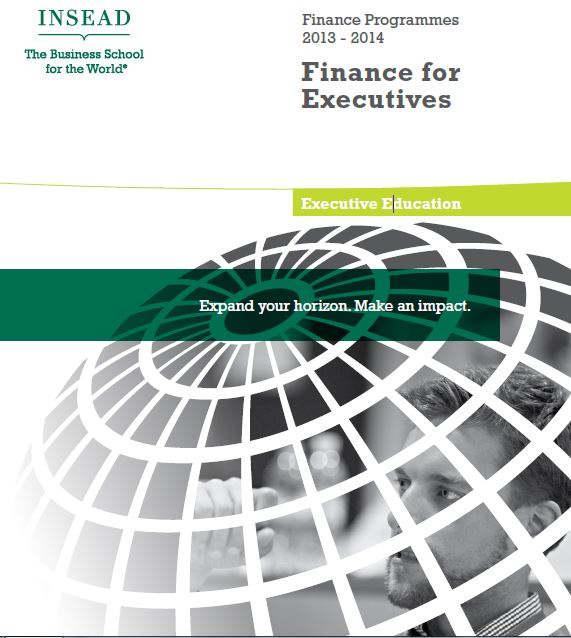 Have you ever been on a ‘Finance for non-financial managers’ course? Did it not strike you as an odd concept? Who do they mean? Which managers are ‘non-financial’ and should there not also be a counter-balancing course for finance people: offering some broader yin to their narrow yang?
Have you ever been on a ‘Finance for non-financial managers’ course? Did it not strike you as an odd concept? Who do they mean? Which managers are ‘non-financial’ and should there not also be a counter-balancing course for finance people: offering some broader yin to their narrow yang?
According to Insead (“the business school for the world”) its latest ‘Finance for Executives‘ course is based on the dubious premise that –
“The economic uncertainties of today’s world make it imperative for non-financial managers to be able to communicate with those in accounting and finance”.
It also refers to “Value-based management” which it describes as “a comprehensive approach to management based on the principle that managers at all levels of the organisation must manage their firm’s resources with the ultimate objective of creating shareholder value.”
Isn’t it time we turned this outmoded thinking on its head? Wasn’t it an obsession with shareholder value and conventional accounting practices that got us into this mess in the first place? Who is it that really needs to learn? Surely the real imperative today, the No. 1 priority in executive education, is for accounting and finance people to be trained in all of the crucial areas missed by conventional accounting?
How about a course on ‘Human capital management for finance, accounting and auditing managers’? To get on this course though all finance people will have to pass a short, but telling, entrance test. The objective of this test, and the course that follows, is to ensure finance executives can make a clear connection in their heads (and their accounting) between wealth creation and the people who create it.
The Test
- What is wealth?
- What is value?
- What is added value?
- Who produces value?
- What is a cost?
- How do you distinguish between a cost and an investment?
- How does conventional budgeting limit human creativity and endeavour?
- What is an intangible and how do you audit it?
- What value would you put on learning? (and is it a higher return than any other investment?)
- What is human capital and how do you account for it?
- What is the purpose of the finance/accounting/audit functions today and what should your new role be?
Comments are closed